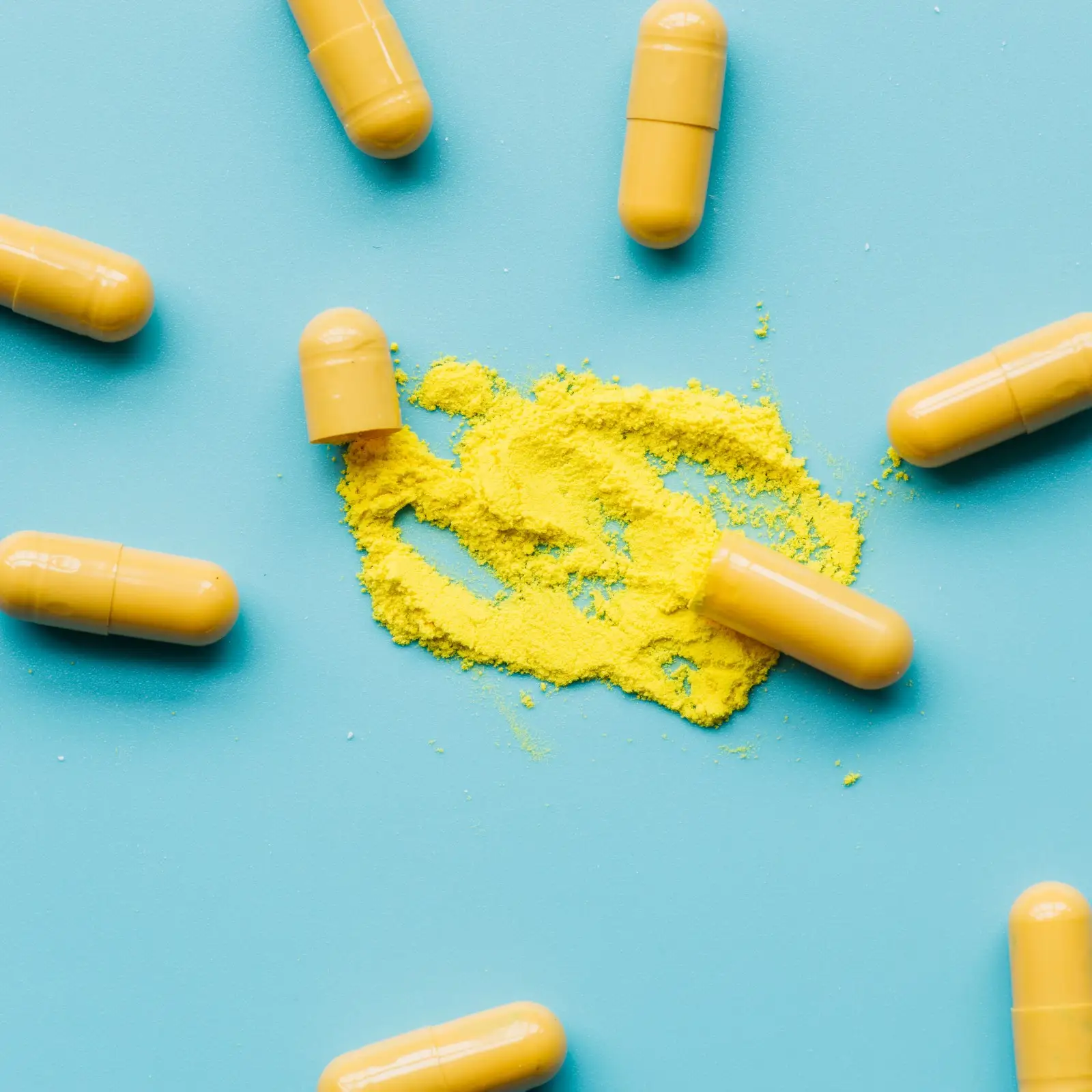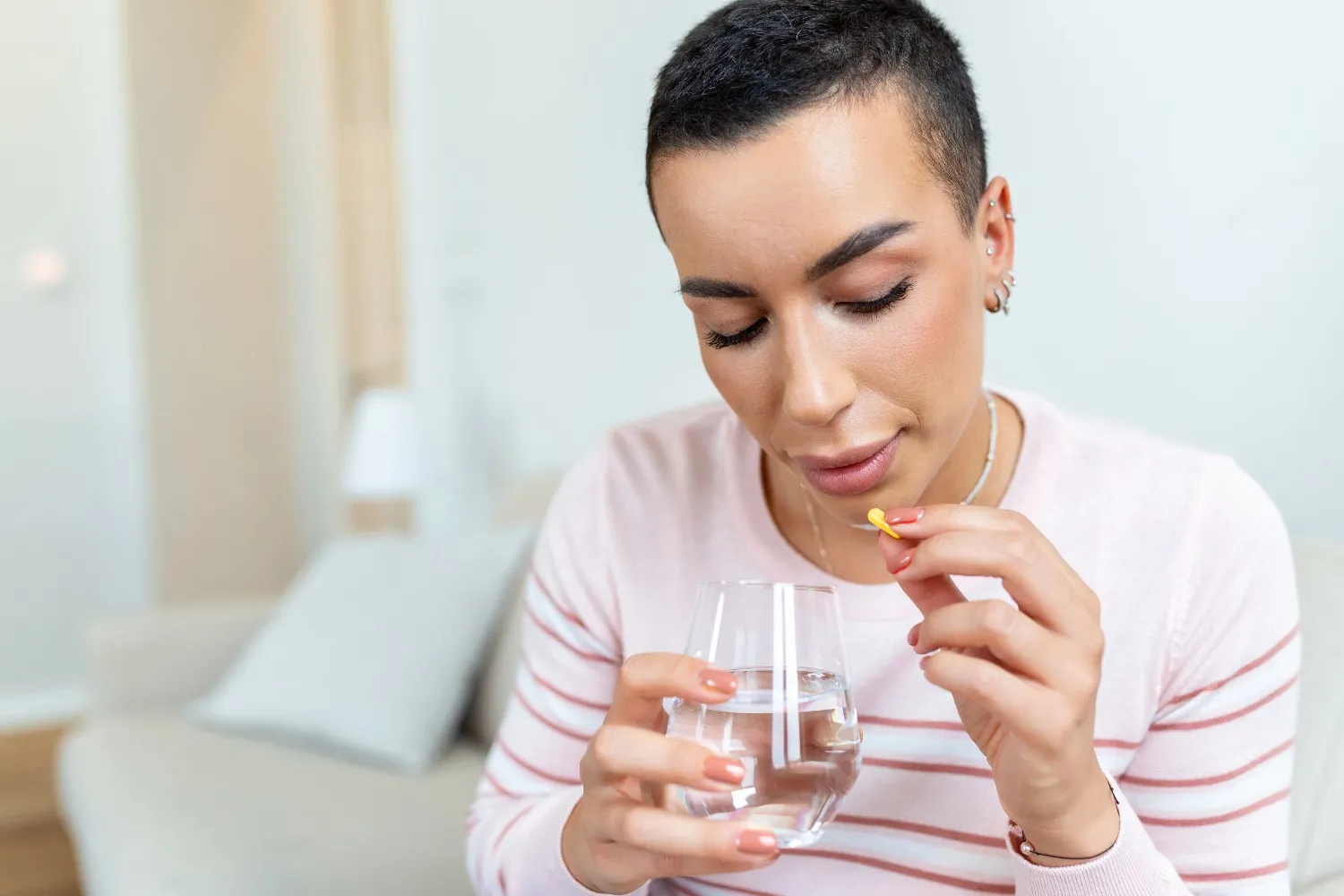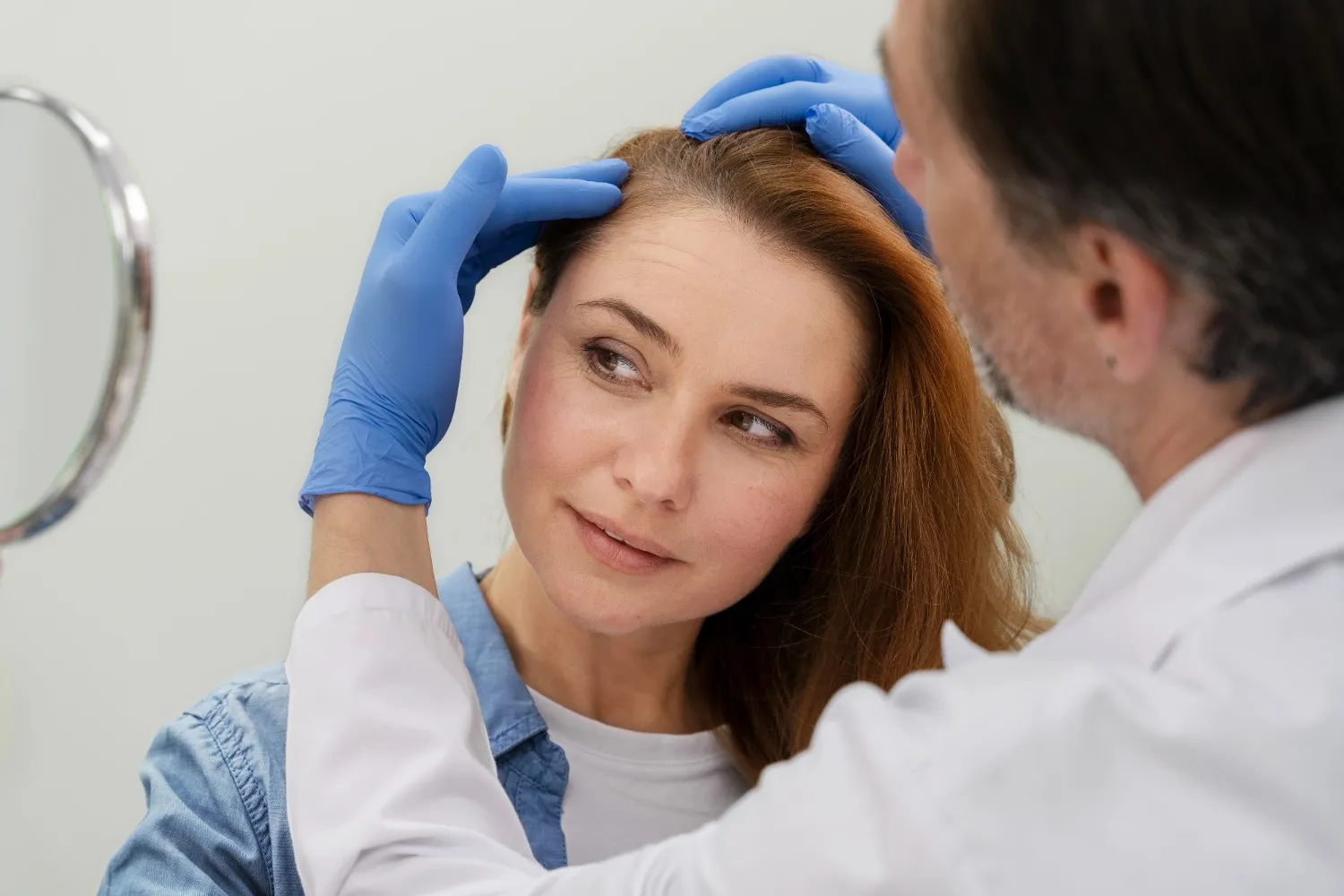Table of Contents
If you are wondering about the link between berberine and hair loss, the answer is not one-sided.
Berberine may cause temporary shedding in some people, yet research also suggests it has properties that could support hair growth and scalp health.
Scientists are now exploring its role in both reducing inflammation and activating pathways tied to hair follicle growth.
Key Summary:
-
Berberine may cause temporary shedding in some people when they first start taking it.
-
Berberine may support hair growth by reducing inflammation and protecting follicles from stress.
-
Studies suggest it can activate the Wnt/β-catenin pathway, which plays a role in hair follicle regeneration.
-
Hormone and metabolism support from berberine may help with conditions like PCOS and androgenetic alopecia.
-
More human research is needed, so professional guidance is important before using it for hair health.
What Is Berberine?
 Berberine is a natural compound found in plants such as barberry, Oregon grape, and goldenseal. It has been used in traditional medicine for centuries and is now widely studied for its ability to lower blood sugar, support metabolism, and reduce inflammation.
Berberine is a natural compound found in plants such as barberry, Oregon grape, and goldenseal. It has been used in traditional medicine for centuries and is now widely studied for its ability to lower blood sugar, support metabolism, and reduce inflammation.
In modern research, berberine is best known for helping with type 2 diabetes, insulin resistance, and cholesterol management (1).
These benefits come from how it interacts with enzymes and hormones in the body, making it useful for improving metabolic and cardiovascular health.
Beyond these uses, scientists have noticed that berberine may also influence hair health.
By regulating hormones, lowering inflammation, and protecting cells from oxidative stress, berberine creates a healthier internal environment that may affect the hair growth cycle (2).
Does Berberine Cause Hair Loss?
Berberine does not directly cause permanent hair loss, but some people may experience temporary shedding when they begin taking it. This is often a short adjustment phase and tends to resolve as the body adapts.
Researchers believe these changes may be linked to shifts in hormones and metabolism.
Because berberine affects insulin, cortisol, and other pathways, it can sometimes trigger hair follicles to enter a resting phase, which leads to short-term shedding (3).
Temporary Shedding (Telogen Effluvium)
Some people who start taking berberine report a sudden increase in hair shedding. This process, known as telogen effluvium, happens when hair follicles move into the resting phase earlier than expected.
The good news is that this type of shedding is usually temporary. Once the body adjusts to berberine, hair growth cycles often return to normal within a few months.
Hormonal and Metabolic Effects
Berberine influences hormones such as insulin and cortisol, both of which play a role in hair follicle activity. A sudden improvement in blood sugar control or stress hormone balance can temporarily shock the system, leading to visible shedding.
However, these same effects may also help hair over the long term. By reducing chronic inflammation and stabilizing hormone levels, berberine may actually protect follicles from damage that contributes to thinning.
Can Berberine Promote Hair Growth?
-v1756265880180.webp) Yes, berberine shows potential to promote hair growth by reducing inflammation, balancing hormones, and activating the Wnt/β-catenin pathway, which is critical for follicle regeneration. While most studies are still preliminary, results are promising.
Yes, berberine shows potential to promote hair growth by reducing inflammation, balancing hormones, and activating the Wnt/β-catenin pathway, which is critical for follicle regeneration. While most studies are still preliminary, results are promising.
Hair loss is often made worse by oxidative stress and chronic inflammation around the scalp.
Berberine acts as both an antioxidant and an anti-inflammatory, helping to protect follicles from damage. This creates better conditions for strong, healthy hair growth.
In lab studies, berberine has been shown to influence the Wnt/β-catenin pathway, a key driver of follicle activation and new hair development (4).
Early evidence also suggests it could help with hormone-related thinning, such as male and female pattern baldness, by reducing the activity of enzymes like 5α-reductase (5).
How Berberine May Promote Hair Growth
While research is still developing, some studies suggest berberine may support healthier hair growth through several biological pathways. Here are a few ways it might play a role:
Anti-Inflammatory and Antioxidant Properties
Chronic scalp inflammation and oxidative stress are linked to follicle damage and thinning.
Berberine has both anti-inflammatory and antioxidant actions, which may help create a healthier environment for hair to grow.
Protecting follicles from stress could, in theory, support stronger strands over time.
Wnt/β-Catenin Pathway Activation
The Wnt/β-catenin pathway is one of the main regulators of hair follicle development.
Some lab studies suggest that berberine may activate this pathway, potentially encouraging follicles to enter the growth phase.
While these findings are promising, more human studies are needed before drawing conclusions.
Potential in Androgenetic Alopecia (Male/Female Pattern Baldness)
Androgenetic alopecia is influenced by hormones like DHT (dihydrotestosterone).
Early research points to berberine possibly affecting enzymes such as 5α-reductase and TGF-β2, which are connected to hair thinning.
This raises the possibility that berberine could play a supportive role in managing pattern hair loss, though clinical evidence is limited at this stage.
PCOS and Hormone-Related Hair Loss
Polycystic ovary syndrome (PCOS) often leads to hair thinning due to hormonal imbalances and insulin resistance.
Since berberine may improve insulin sensitivity and reduce inflammation, it could indirectly support hair health in women with PCOS.
Still, this would depend on the individual and should always be considered alongside medical advice.
Risks, Side Effects, and Considerations
Like any supplement, berberine is not without its drawbacks. Some people experience gastrointestinal discomfort such as cramping, diarrhea, or constipation, especially when starting at higher doses.
It can also lower blood sugar, which may be unsafe for people already on diabetes medications. This effect, while useful for metabolic health, could become risky if not monitored properly.
Rarely, users have reported changes in scalp condition or increased shedding during the first weeks. These effects usually improve as the body adapts, but they highlight why it’s important to monitor your response carefully and consult with a healthcare provider before long-term use
How to Use Berberine Safely for Hair Health
 If you’re considering berberine for hair or general health, it’s best to approach it cautiously and with professional guidance.
If you’re considering berberine for hair or general health, it’s best to approach it cautiously and with professional guidance.
Start with a low dose (commonly 500 mg once a day) to see how your body responds.
Split doses throughout the day if you plan to take higher amounts, as this may reduce stomach upset.
Avoid combining with certain medications, especially those for diabetes, blood pressure, or cholesterol, unless approved by your doctor.
Monitor for side effects such as digestive discomfort, unusual hair shedding, or low energy.
Pair with a balanced diet and lifestyle to maximize overall health benefits, since hair growth depends on more than one factor.
When to See a Doctor
 You should see a doctor if hair shedding continues for more than a few months or is rapidly worsening. Persistent or sudden hair loss may point to an underlying condition that requires medical evaluation.
You should see a doctor if hair shedding continues for more than a few months or is rapidly worsening. Persistent or sudden hair loss may point to an underlying condition that requires medical evaluation.
It’s also important to seek help if hair loss comes with other symptoms such as fatigue, hormonal changes, or nutritional deficiencies.
A healthcare professional can run tests, check medications, and guide whether berberine is safe or suitable for your situation.
Conclusion
Berberine and hair loss have a complex relationship. Some people may notice temporary shedding at first, while others could benefit from its potential to reduce inflammation, balance hormones, and activate pathways tied to follicle growth.
Although early evidence looks promising, more human studies are needed before berberine can be recommended as a hair loss treatment.
If you’re considering it, start with low doses, monitor your response, and consult a doctor to make sure it fits your health needs.
FAQs
Can berberine make hair loss worse?
In some cases, berberine may cause temporary shedding when you first start taking it. This usually improves as the body adjusts and is not linked to permanent hair loss.
How long does it take to see results from berberine for hair growth?
If berberine has a positive effect, changes in hair health may take several months to show. Hair growth cycles are slow, so consistency and patience are important.
Is berberine better for male or female hair loss?
Current evidence suggests berberine may help with hormone-related hair thinning in both men and women, including androgenetic alopecia and PCOS-related loss. However, most studies are still in early stages.
Can I combine berberine with minoxidil or finasteride?
Yes, berberine may be used alongside treatments like minoxidil or finasteride, but this should only be done under medical supervision. Your doctor can help ensure there are no interactions or added risks.
Does berberine help with PCOS hair thinning?
Berberine may indirectly help women with PCOS by improving insulin resistance and lowering inflammation. These effects could support healthier hair growth, though more research is needed to confirm its role.



